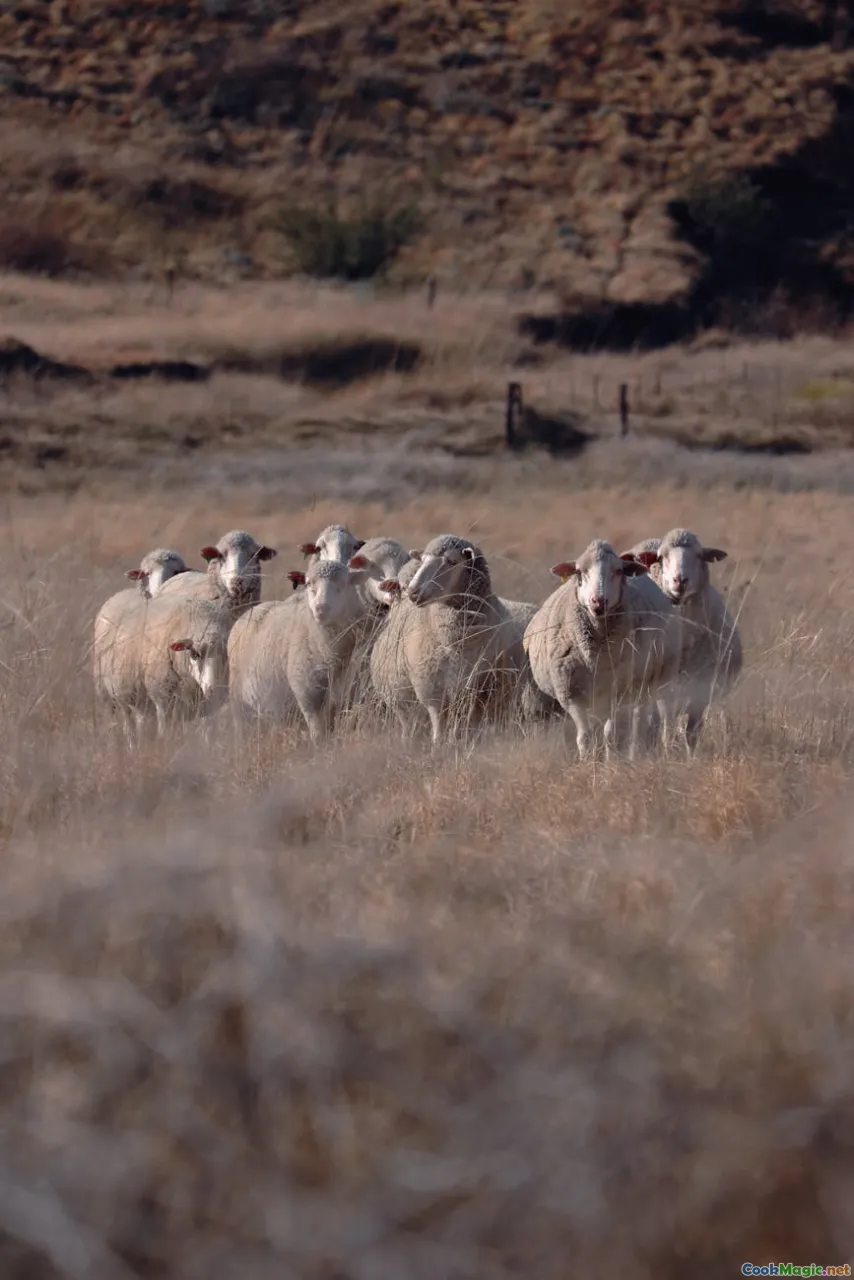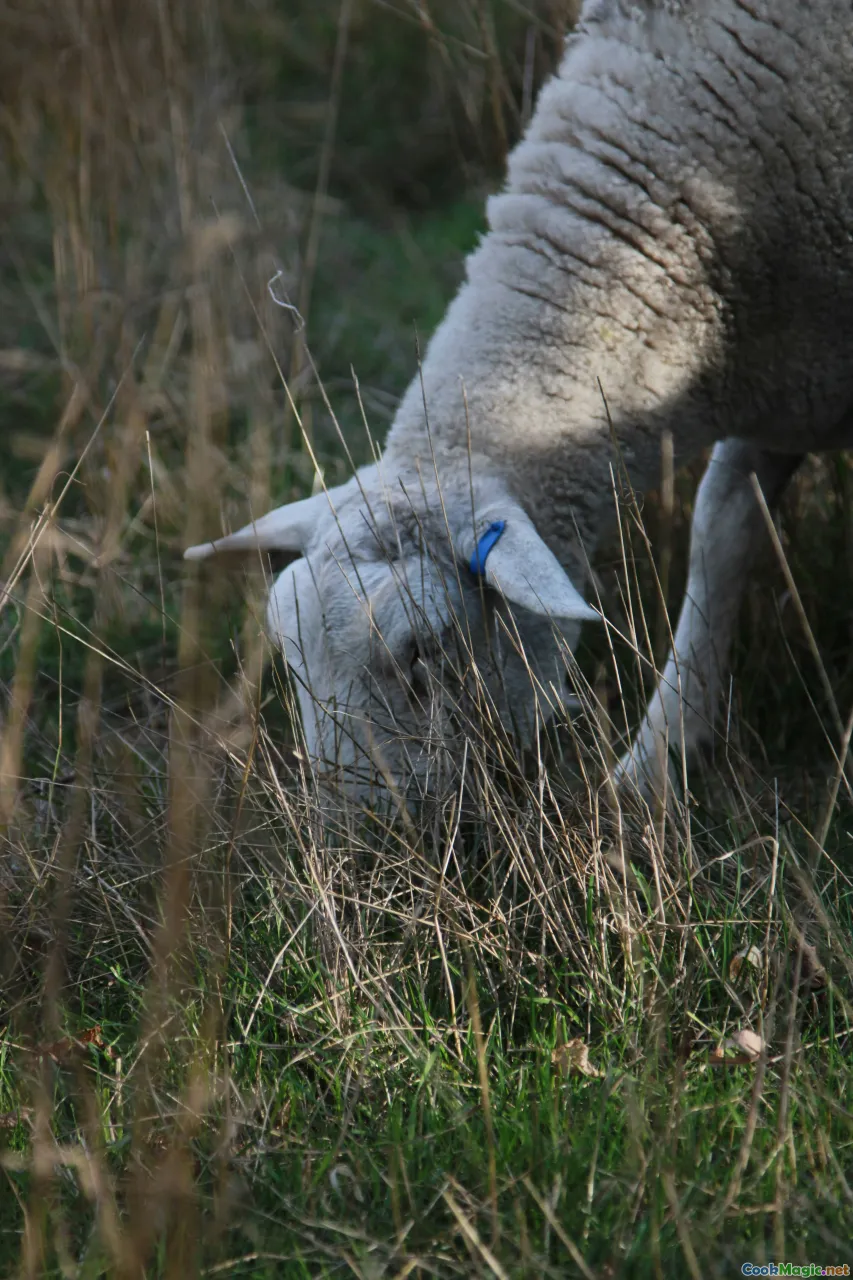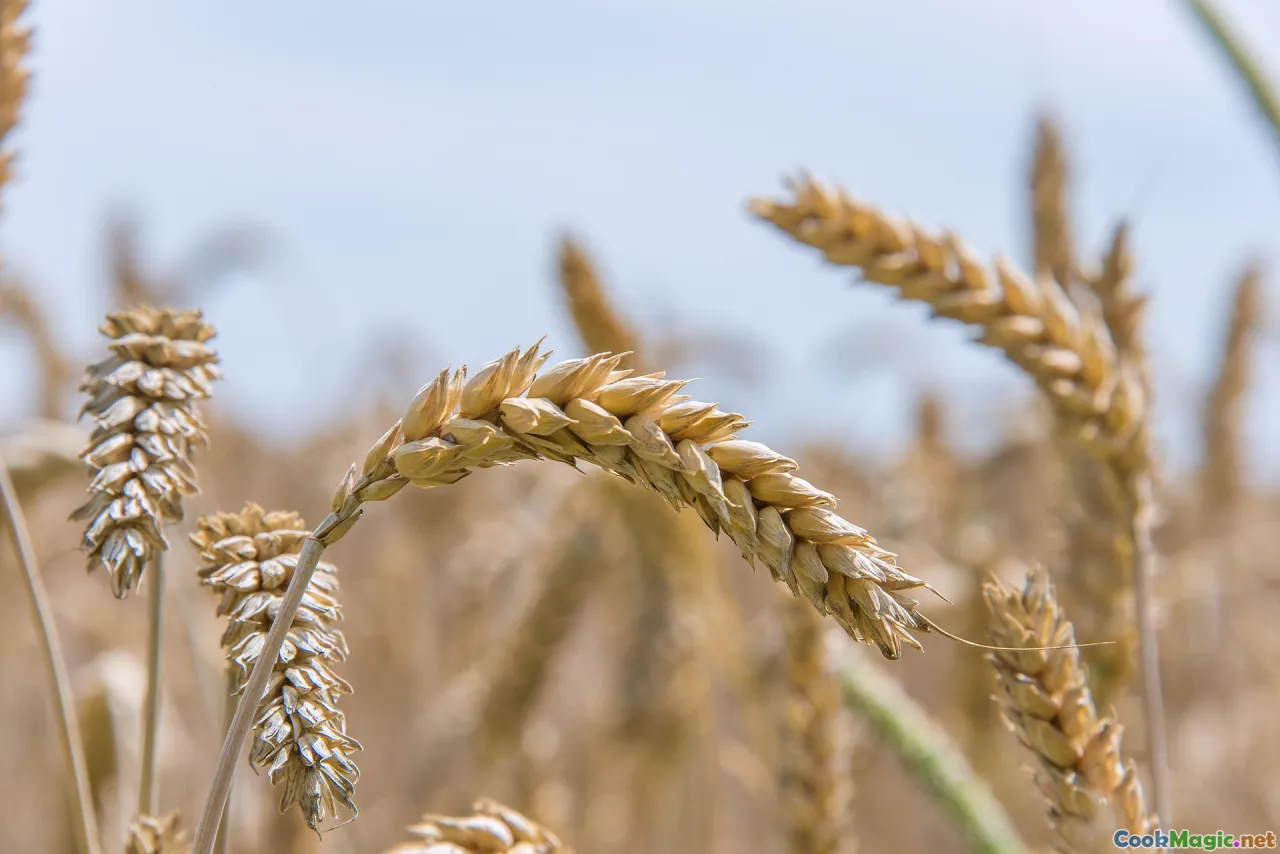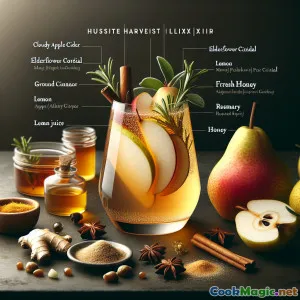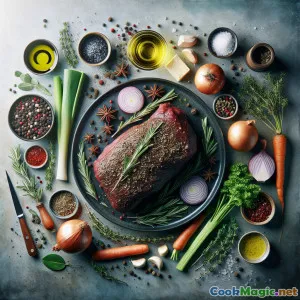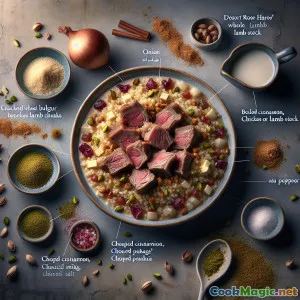
रेगिस्तान गुलाब Harees: कटोरी में खुशबूदार विरासत
(Desert Rose Harees: Fragrant Heritage in a Bowl)
(0 समीक्षाएँ)सामग्री
-
200 grams टोड़ा हुआ गेहूं (बुलगुर, मोटा)
(Traditional for harees—soaked overnight)
-
400 grams सन्कुचित, बोनलेस भेड़ का मांस टुकड़ों में कटा हुआ
(Substitute with chicken for lighter flavor)
-
1 large प्याज
(बारीक कटा हुआ)
-
300 ml पूर्ण दूध
(For creamy texture; use plant milk for vegan)
-
1 litre मुरग़ी या भेड़ का स्टॉक
(Homemade or low-salt recommended)
-
30 grams मक्खन
(Use vegan alternative for dairy-free)
-
0.5 teaspoons पिसी हुई दालचीनी
(Essential warming spice)
-
0.5 teaspoons पीसी हुई जायफल
(For delicate aroma)
-
1 teaspoon गुलाब जल
(Blossom finish; add to taste)
-
2 tablespoons पिस्ता, कटा हुआ
(Garnish for color & crunch)
-
1 teaspoon समुद्री नमक
(स्वादानुसार)
-
0.5 teaspoon काली मिर्च
(स्वादानुसार)
(Traditional for harees—soaked overnight)
(Substitute with chicken for lighter flavor)
(बारीक कटा हुआ)
(For creamy texture; use plant milk for vegan)
(Homemade or low-salt recommended)
(Use vegan alternative for dairy-free)
(Essential warming spice)
(For delicate aroma)
(Blossom finish; add to taste)
(Garnish for color & crunch)
(स्वादानुसार)
(स्वादानुसार)
पोषण
- परोसने की संख्या: 4
- सेवा आकार: 1 generous bowl (~300g)
- Calories: 550 kcal
- Carbohydrates: 60 g
- Protein: 28 g
- Fat: 22 g
- Fiber: 8 g
- Sugar: 5 g
- Sodium: 660 mg
- Cholesterol: 70 mg
- Calcium: 160 mg
- Iron: 3.2 mg
निर्देश
-
1 - Soak Wheat:
A day before cooking, rinse and soak the bulgur wheat in cold water for at least 8 hours or overnight.
-
2 - Sauté Onion and Lamb:
In a large, heavy pot, melt butter over medium heat. Add chopped onion and sauté until soft. Add lamb chunks and brown on all sides.
-
3 - Simmer Meat & Wheat:
Drain soaked wheat. Add wheat and stock to pot. Bring to boil, reduce heat, cover, and simmer 2 hours, stirring occasionally, until lamb is very tender.
-
4 - Blend & Season:
Remove pot from heat. Shred lamb in pot using two forks. Stir vigorously or use stick blender for creamy, slightly lumpy texture. Add salt, pepper, cinnamon, nutmeg, and milk. Return briefly to low heat.
-
5 - Finish with Rosewater:
Stir in rosewater gently. Taste and adjust seasoning.
-
6 - Garnish & Serve:
Ladle into bowls. Sprinkle with chopped pistachios and a dusting of cinnamon for dramatic effect. Serve warm.
A day before cooking, rinse and soak the bulgur wheat in cold water for at least 8 hours or overnight.
In a large, heavy pot, melt butter over medium heat. Add chopped onion and sauté until soft. Add lamb chunks and brown on all sides.
Drain soaked wheat. Add wheat and stock to pot. Bring to boil, reduce heat, cover, and simmer 2 hours, stirring occasionally, until lamb is very tender.
Remove pot from heat. Shred lamb in pot using two forks. Stir vigorously or use stick blender for creamy, slightly lumpy texture. Add salt, pepper, cinnamon, nutmeg, and milk. Return briefly to low heat.
Stir in rosewater gently. Taste and adjust seasoning.
Ladle into bowls. Sprinkle with chopped pistachios and a dusting of cinnamon for dramatic effect. Serve warm.
रेगिस्तान गुलाब Harees: कटोरी में खुशबूदार विरासत :के बारे में ज़्यादा जानकारी
Desert Rose Harees: An English Take on an Arabian Classic
Desert Rose Harees draws inspiration from centuries-old harees—a beloved porridge throughout the Middle East during Ramadan or festive occasions. Traditionally made with wheat, mutton, and slow-cooked generosity, harees is comfort at its purest. This version respectfully transforms the heirloom dish, blending Middle Eastern heart and English flair: think warming nutmeg and creamy milk, mellow rosewater, and the crunchy pistachios imagined as a desert bloom. Let's delve into its story, crafting, and distinct adaptability.
Historical Roots & Global Twists
Harees itself originates from ancient Arabia, its legacy traversing trade routes to Indian, Persian, and Ottoman tables. England's multicultural hubs—London or Manchester—have welcomed aromatic harees via immigrants, who refined it with British local produce, alternative grains, and personal innovation. Our 'Desert Rose Harees' melds earthy, coarse bulgur wheat with the stately aromatics of English spice cupboards, while the touch of rose evokes both the sunrise on the dunes and the elegant English rose gardens.
Notably, adding milk isn’t found in Arabic originals, but English tastes and local availability blessed the bowl with utmost creaminess. Aromatic spices—cinnamon, nutmeg—bridge Arabian flavors with the warmth of British kitchens. The pistachio garnish not only nods to festival lavishness (slightly Persian-leaning) but delivers a satisfying mix of color, crunch, and nostalgia for celebration.
Tips & Adaptations
- Wheat Choices: Stick with coarse bulgur for chewy authenticity. Pearl barley offers an English farmhouse edge, while oats lend nuttiness.
- Meat Magic: Lamb’s rich flavor is classic; for lighter eaters or when English pasture spring lamb is unavailable, chicken or even plant-based mince come close.
- Creamy Dairy: Full-fat makes the embodiment of comfort, but almond or oat milk blend right into your grains for a vegan take.
- Rosewater Wisdom: Tradition heaps it in desserts, but restrained use yields elegance rather than domineering floral soap! Start with less—taste and titrate.
- Festive Twists: Orange blossom water or dried rose petals as garnish can further glamour-up your bowl. Toasting the pistachios gives extra aroma.
Genius Behind the Flavor
Beyond hearty sustenance, 'Desert Rose Harees' stands as a meeting place for cultural expressions—Middle Eastern fasting (iftar), English Christmas or Ramadan, or merely as solace food for damp, cold days. The distinctive addition of cinnamon and the romantic touch of rose sends up the quilted comfort of your grandmother’s kitchen while channeling magic from Moroccan souks.
Adding milk not only velvets the base since British palates often welcome richness in porridges (think rice pudding!), but also bridges traditional with familiar. The use of pistachios celebrates English gardens—as green as their leaves and as opulent as any Eastern feast.
Cultural and Personal Significance
Serving harees means honoring patience and abundance. It’s low-effort after prep but rewards those who, like British leaf-peepers or Arabian breeze-seekers, can wait for slow magic. Sharing the stirring (children LOVE to mash and mix the pot) invites family togetherness, and ladling warm bowls is a spiritual practice community-wide.
At a dinner party, a single whiff of rosewater floats nostalgia for distant landscapes and ancestral stories. An English cook who brings this bowl to their table for Christmas Day, Eid, or a cold spring night marries two worlds on a spoon.
Final Thoughts
‘Desert Rose Harees’ needs no elaborate skills—just time, kindness, and your slowest Sunday. Serve hot with friends, a simple salad, pickled onions on the side, or just drizzle on cream and extra spices. Each spoonful weaves culinary migration, gardens, gatherings, and garden-fresh inventiveness into lasting comfort, never tasted the same way twice.

